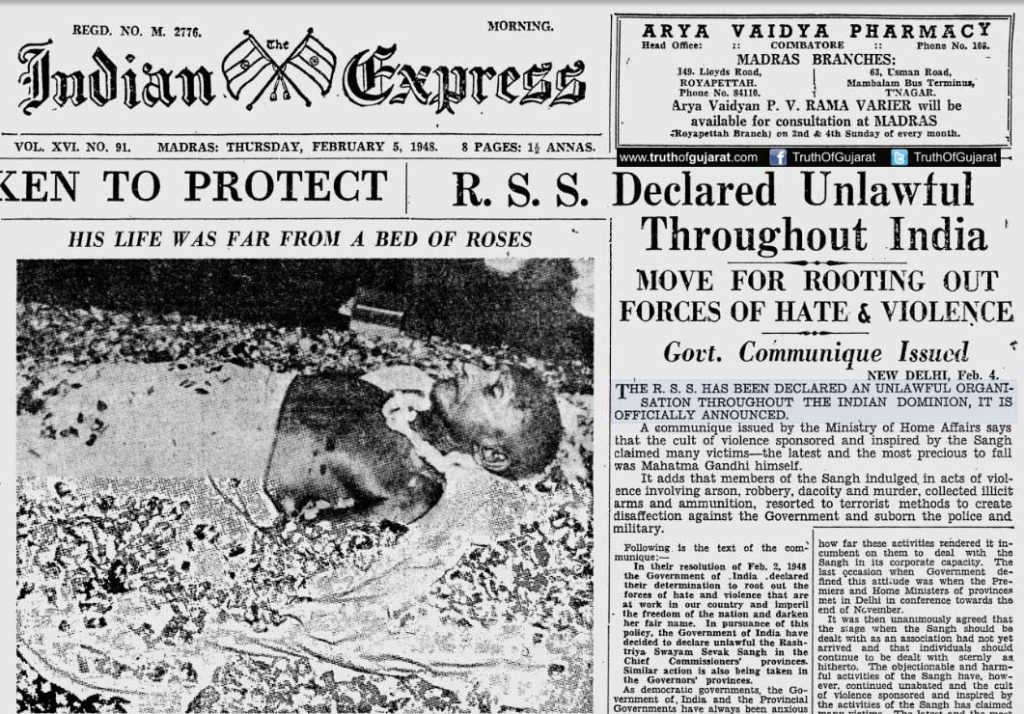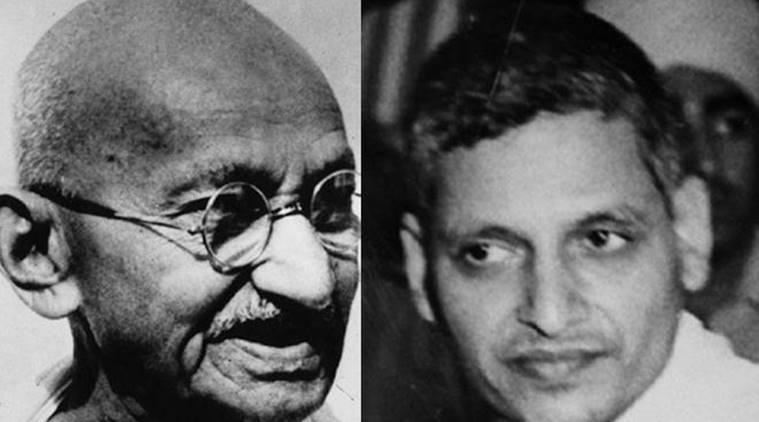
According to the Online Etymology Dictionary, the root of the verb protest is “to make a solemn declaration” or as a noun it refers to a pledge. Throughout The Story of My Experiments with Truth, Mohandas Gandhi notes the oaths he carried with him at various lengths. In Part One: Chapter VIII, he resolves to never steal again after he began atonement and reconciliation with his father. At a young age, he shows devout courtesy to truth. He dedicates experience of life to the pursuit of truth hence the book’s subtitle.
Later he swears an oath to his mother to not consume meat while visiting England. His Hindu faith, of which he claims ignorance, requires vegetarianism. He studies and reads on his visit to learn dietary regulations on his own that keeps his promise. When he returns home, he learns of her passing. Throughout his life he continues a strict diet without meat or milk, and his wife Kasturbabai, is also expected to abide. Even under severe threat of losing her life, Kasturbabai refused the doctor’s advice to have beef broth. Gandhi demonstrates such commitment to his ideals that he writes, “Let no one cavil at this, saying that God can never be partial, and that He has no time to meddle with the humdrum affairs of men.” His abidance to truth and oath seem to uncover God’s existence within the human sphere.
The land of India has not changed much since Gandhi’s protests and life devotions. What then is the purpose of a man of God? Gandhi notes the lack of sanitation and negligence of the poor. He is appalled that Indians would defecate in the sacred of river Ganges. He opposes the caste system and refuses to wear the sacred thread until Hinduism improves and serves the people’s well being. However he is not a bigot as he notes, “In matters of religion beliefs differ, and each one’s supreme in himself.” Gandhi’s dedication to moral improvement becomes a passion he shares with his fellow countrymen by founding schools to eradicate prejudice and ignorance so that the poor can become stronger in their self-reliance. Gandhi is not just a political activist as we understand it, but he is also a moral leader and a clear signal that God indeed exists and is concerned with human affairs.
India’s national life and character may not have improved according to Gandhi’s liking or expectations. He frequently suggests that God allows his efforts to flounder. He cannot explain why but suffers his disappointment gladly. He offers this piece of wisdom that all religions aspire to express, “The salvation of the people depends upon themselves, upon their capacity for suffering and sacrifice.” The people of India have their leader and learned to love him—however, the next important task for them is to learn to reverence each other in their habitude. It is always up to a people to secure their own blessings and reconcile with the Spirit.
Satyagraha, or passive resistance, is not a tool of destruction or self-interest. In the Autobiography, Gandhi expresses that passive resistance intends to improve the enemy’s well-being also. This is a powerful statement of political reality, that to resist you must hold the deepest compassion for the opponent and maintain moral strength and fearlessness. In the world today, such moral sacrifice and leadership appears to be absent.
In the United States, riots and violence broke out in protest of police brutality and racial injustice. The movement Antifa, a decentralised ideology and tool, wages violence with right-wing counter protests in a display of moral cowardice. Without securing blame, these street battles escalate and small businesses are ravaged. Government buildings are burned to the ground. A legal analyst on CNN requested that the viewers not focus on the destruction of property because the pain of the Black community is of greater importance. This response was in reference to the killing of Rayshard Brooks in Atlanta, Georgia. In his drunk fear of being sent back to prison, Brooks stole a taser from police and resisted arrest, eventually being shot by the officer who then tried to administer CPR.
Some scholars of literature compare Black American fiction to dalit fiction. Dalits are the untouchables of the Indian caste system. Gandhi’s social mission was to unify people of all castes, faiths, and walks of life. Frequently meeting with people of different faiths, his life effort was in understanding and showing compassion even to those with whom he disagreed. The caste system was something he wished to see overcome so that Hinduism could bear equal measure to other faiths. As mentioned earlier, he would not wear the sacred thread because he felt it was a symbol of superiority. He disavowed himself of self-righteousness.
His ideal State is one without violence, yet he maintained realistic understanding of the nature of the State. He wrote, “If national life becomes so perfect as to become self-regulated, no representation becomes necessary.” For this writer, such anarchism is the height of mature political ideals. Gandhi served this ideal of a nonviolent state with utmost clarity and dedication.
Finally I must refer to the great statement in the Autobiography on language. As a poet, I am deeply engaged with the thought presented, “Human language can but imperfectly describe God’s ways.” The devotee of Truth must recognize that our world is predicated on falsehood and deceit. Truth, it seems Gandhi suggests, is a lifelong pursuit in virtuous effort and suffering. Sincere willingness to undergo the difficult pursuit of Truth was Gandhi’s mission: however, in no way has he completed it for us. After all, it is our own choice to renounce the world and defy it’s injustices.
Dustin Pickering is the founder of Transcendent Zero Press and editor-in-chief of Harbinger Asylum. He has authored several poetry collections, a short story collection, and a novella. He is a Pushcart nominee and was a finalist in Adelaide Literary Journal’s short story contest in 2018. He is a former contributor to Huffington Post.
Originally published by Borderless Journal
SIGN UP FOR COUNTERCURRENTS DAILY NEWSLETTER












































